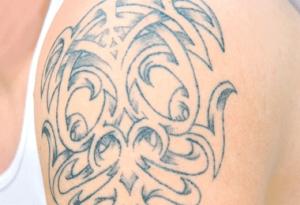
Dear Sticky Wicket,
I sometimes find myself annoyed or threatened by the slang used by young people of different races. I don’t like it when I can’t understand what they’re talking about.
~Can’t Understand in Cleveland
Dear Can’t Understand,
The use of slang is as old as communication itself. Picture different groups of prehistoric humans, donning animal skin clothing, and carrying various weapons made of sticks and stones as they roamed unfamiliar lands — each using their own unique words and styles of communicating. When one group encountered another, it’s easy to imagine them baffled, intrigued and even angered by the different ways the others communicated. With one group’s grunts meaning something different then the other group’s grunts or having a different variation, misunderstandings were inevitable.
And while we and the way we communicate have evolved like the use of slang, it still bring forth the same scene of confusion, curiosity and consternation between different races, cultures and ethnicities.
Slang isn’t something limited to one race, ethnic group, culture, religion or even one time period. There is British slang, English slang and U.S. slang. There is college slang, rap slang, Internet slang, drug slang and business slang. There is slang from every decade and century. Slang has come from movies, television and music. There are dictionaries and Web sites devoted to helping people find definitions for slang. And if you want to know how to convert a typical English sentence into slang, you can Google it.
Slang has been used as a form of expression, a form of secrecy, and in its darker use, a form of disrespect. College professors have dedicated classes and personal time to the study and recording of slang. University of Georgia professor John Algeo has even said, “Slang is humanity’s first play toy.”
J.E. Lighter, chief editor of the Random House Historical Dictionary of American Slang is quoted as saying, “Slang, at its worst, is stupidly coarse and provocative. At its best, it makes standard English seem pallid.”
In his 1885 essay, “Slang in America,” American poet Walt Whitman refers to slang as “an attempt of common humanity to escape from bald literalism, and express itself illimiably.”
The great American novelist Mark Twain used slang in his novel, “The Adventures of Tom Sawyer and Huckleberry Finn” to help give the reader its sense of the characters’ ages, upbringing and race.
The Cambridge University Press has assembled a limited database of slang. Microsoft developed a CD-ROM in 1997 devoted to helping people quickly access the origins of slang, its uses, its position in the language and other related topics.
And while slang, the way we track it, use it and view it in society has changed — so has slang itself. The slang used in the 1800s, isn’t used today. And the slang we use today, most likely, won’t be used in 2108. So, the next time you hear a slang word that baffles or offends you, stop. Don’t judge. Don’t accept it too quickly, either. Just remember, you don’t necessarily have to like or understand slang — most likely you won’t unless you’re part of the specific group. But what you do need to understand is the history of slang. You need to know how it has helped mold the way we all communicate, and how it — like us — has changed and will continue to change over time.
Slang may change, but it isn’t going away — and that is a good thing. Slang is a vital tool for self-expression. It allows us to feel empowered, so that we too can mold our language and shape our society in some fashion. While it would be nice if slang was always used in a positive form, it won’t be — it can’t be. Slang, at its core, is a form of protest. A way of rebelling against what society says you can say and how you should say it. Therefore, the use of slang is as essential to the growth and understanding of our cultures as anything, and using slang exercises our right to freedom of speech — speech we created. Speech we use, no matter how incorrect it is grammatically or how offensive it is to those who don’t understand it.
